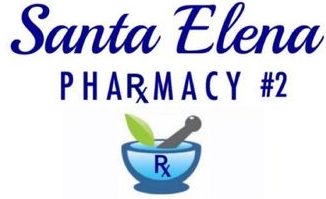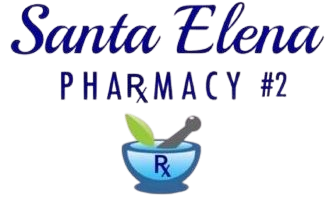Prescription medications are a vital part of healthcare. They help us manage chronic conditions, treat illnesses, and alleviate symptoms. Even though they are important, there is a lot of confusion and doubt concerning them. A lot of individuals don’t really know how they function, why they’re given, or what they really do for health. To make smart choices about our health, we need to be able to tell the difference between reality and fiction.
This blog will explore the truth about prescription medications, helping you understand why they’re prescribed, how to use them safely, and what to do if you have concerns. By the end of this post, you’ll feel empowered with knowledge to make smarter health choices for you and your loved ones.
Understanding Prescription Medications
Doctors provide people with prescription medications to help with certain health problems. They are often necessary because they target particular symptoms, diseases, or conditions in a way that over-the-counter (OTC) medications cannot. Your doctor may suggest prescription medication if your condition requires a stronger, more specialized approach.
For example, antibiotics are given for bacterial infections, while blood pressure drugs assist in keeping the heart healthy. Diabetes medications assist in maintaining blood sugar levels stable, and opioids are used to treat both chronic and acute pain. All of these drugs are designed to improve your quality of life, manage symptoms, or help you recover faster.
The Importance of Following Your Doctor’s Prescription
One of the biggest mistakes people make with prescription medications is not following the doctor’s instructions correctly. Whether it’s the dosage, frequency, or timing of the medication, these details matter. Medications are often formulated to work in a specific way, and deviating from the prescribed plan can reduce their effectiveness or even cause harm.
For example, taking antibiotics incorrectly can lead to antibiotic resistance, a serious issue where bacteria become immune to the drugs. Missing doses of blood pressure medications could result in spikes or drops in your blood pressure, which can be dangerous.
Moreover, doctors consider your unique medical history, other medications, and health conditions when prescribing drugs. Skipping doses or stopping treatment early might not only make the treatment less effective, but it could also make your condition worse in the long run.
What You Need to Know About Side Effects
Every medication, prescription, or over-the-counter, has potential side effects. Side effects are the unwanted reactions your body might have to a medication. Some side effects are minor and go away as your body adjusts to the drug. Others might be more severe and require medical attention.
It’s crucial to keep in mind that not everyone will have side effects. Your doctor will recommend medications based on how well they work for your disease and how safe they are. But if you feel any pain or have any symptoms that you didn’t expect, you should talk to your doctor before quitting the medicine. They might change the amount of medicine you take or give you a different one that works better for you.
Medications and Interactions
Prescription medications don’t always work in isolation. They can interact with other drugs, food, alcohol, and even certain health conditions. For example, certain medications for high blood pressure may not work well if you’re also taking medications for depression. Similarly, grapefruit can interfere with some medications, causing dangerous side effects.
It’s very important to tell your doctor and pharmacist about all the prescriptions you’re taking, including vitamins and herbal remedies. This makes sure that they may find any possible drug interactions before they become a problem.
Managing Your Medication Routine
Taking your medicines as directed is very important for your health. Depending on the type of medicine, missing a dose here and there can cause major problems. There are easy things you can do to stay organized and on track with your treatment plan, which is good news:
- Set reminders: Use your phone or a pill organizer to keep track of when to take your medications.
- Keep a medication list: Write down all the medications you take, including dosages and timing. Share this list with every healthcare provider you see.
- Stay on schedule: Try to take your medications at the same time every day to make it a habit.
- Review medications regularly: As your health needs change, so may your prescriptions. Regularly check in with your doctor to ensure your medications are still the best option.
The Cost of Prescription Medications
For many, the cost of prescription medications can be a major concern. Healthcare is expensive, and medications are often a significant part of that cost. It’s important to know that there are resources to help manage the cost of prescriptions.
A lot of drug firms have initiatives to help patients, and some pharmacies give discounts. Also, generic drugs can be a lot cheaper than brand-name drugs. These generics contain the same active ingredients and are just as effective, but they’re usually sold at a fraction of the price.
If you find yourself struggling to afford your prescriptions, don’t hesitate to talk to your pharmacist. They can help you explore options, including generic drugs, discount cards, or possibly even switching to more affordable medications.
The Benefits of Prescription Medications
When used correctly, prescription medications can have life-changing benefits. They can reduce symptoms, prevent complications, and even save lives. People with long-term illnesses like diabetes or heart disease rely on prescription drugs to help them live more comfortably and stay healthy.
- Improved quality of life: Medications can relieve pain, reduce symptoms, and help you get back to doing the things you enjoy.
- Control chronic conditions: Many conditions, such as high blood pressure, diabetes, and asthma, require ongoing treatment. Prescription medications help keep these conditions under control, preventing complications.
- Prevent further health problems: Some medications, such as cholesterol-lowering drugs or blood thinners, are used to prevent more serious conditions like heart attacks or strokes.
What to Do if You Have Concerns About Your Medication
If you ever feel uneasy about a prescription or the way it’s affecting your body, it’s important to speak up. Don’t stop taking your medicine without first talking to your doctor. They can help you with your problems, give you advice, and maybe even suggest other options if needed.
It’s essential to trust your doctor and pharmacist, as they have your best interests at heart. But it’s also crucial that you feel like people are listening to you and understanding you. A good doctor will listen to what you have to say and make sure you are happy with your treatment plan.
Conclusion: Empower Yourself with Knowledge
Prescription medications are essential tools in healthcare, but using them correctly and safely requires understanding and attention. By following your doctor’s instructions, being aware of side effects and drug interactions, and keeping track of your medication routine, you can maximize the benefits of your treatment.
For those who are seeking support and guidance on managing their prescriptions, Santa Elena Pharmacy 2 is here to help. With knowledgeable staff, great customer service, and a commitment to your well-being, they can provide the right advice and support for your health needs.
Your health is your most valuable asset, and understanding your medications is a big part of taking care of yourself. Don’t be afraid to ask questions, stay informed, and make educated decisions. It’s your health journey – take control of it today.


